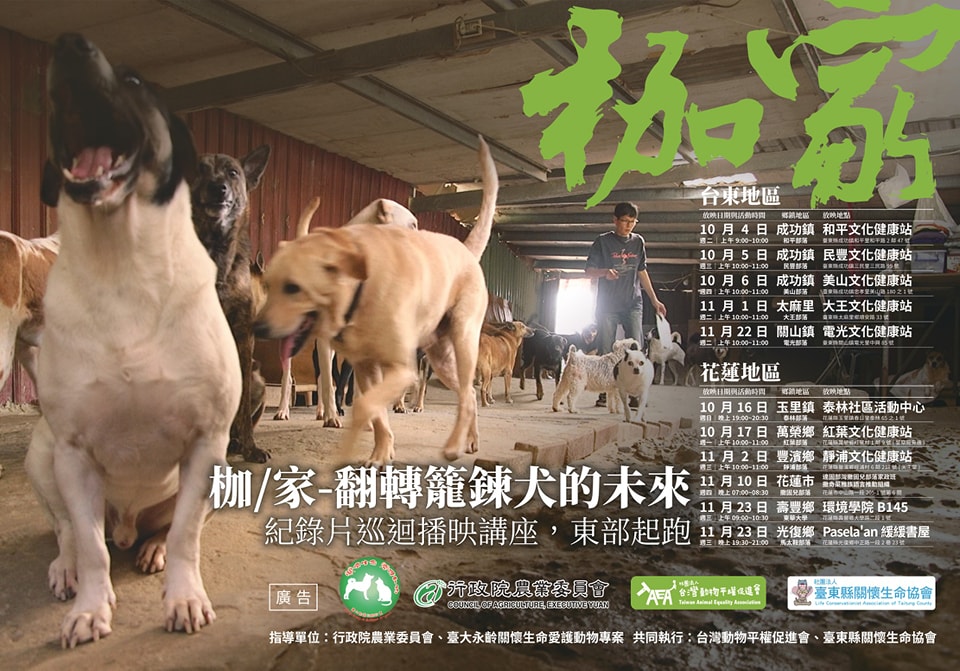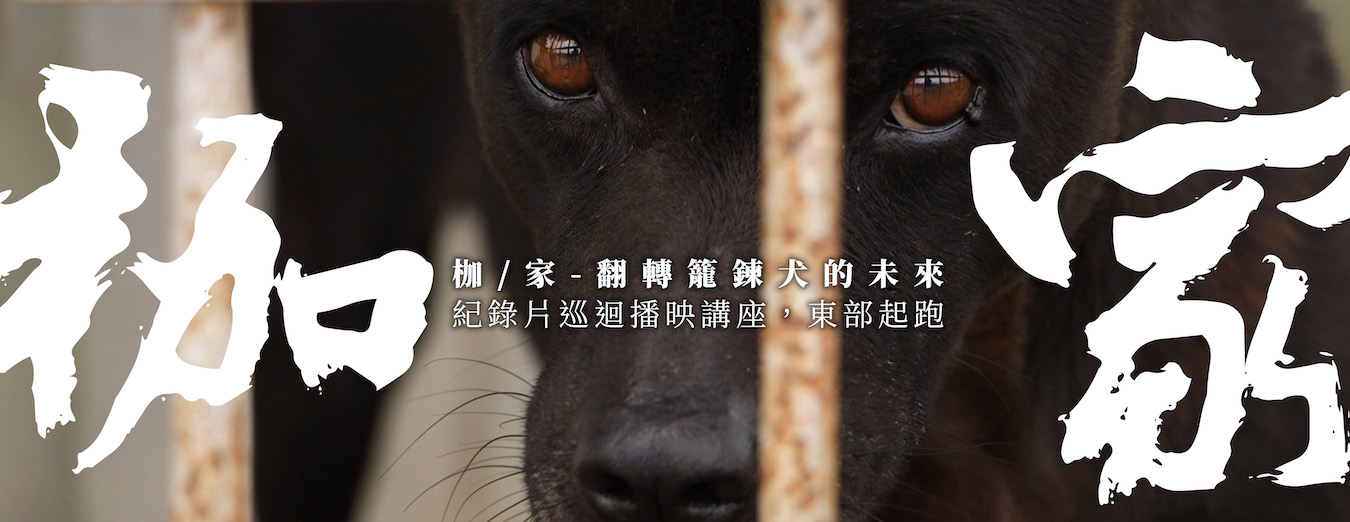by Enbion Micah Aan
語言:
English /// 中文
Photo Credit: 台灣動物平權促進會/Facebook
JIA (枷/家), a short documentary film produced in association with the Taiwan Animal Equality Association (動物平權促進會), is an advocacy film made to inform the public about chained dogs. Chained dogs (籠鍊犬) are dogs who are kept chained all year round, rarely with daily walks or the usual treatments that reach the minimum threshold of appropriate care. Instead of theaters, festivals, broadcasts, or streaming, the exhibition of the film takes place in events at Indigenous townships (部落) and schools.
The issue of chained dogs has been an area of focus for the Taiwan Animal Equality Association for years. Activists and organizers who work around the issues of dogs in Taiwan have also been aware of the problem for quite some time, but the public’s awareness is unfortunately quite low. The awareness around this issue is so low that even Lee Kaidi, the director of this documentary had no idea why the issue of chained dogs was a problem. He starts the film as a novice to the topic, as a confessed “cat servant” (貓奴), he admits, “I really did not understand what is wrong with chaining dogs”. The film was better because of the filmmaker’s unfamiliarity with the topic, as we, the audience, get to follow his journey to learn more about this issue.
The film shows us the condition of chained dogs. As one would expect, a chained dog has a low quality of life, lives in their own filth with little food and water, and bears many visible wounds. A dog behaviorist explained that chained dogs sometimes chew off parts of their bodies not because it is pleasant for the dogs to do so, but because the persistent discomfort can only be suppressed by biting themselves. The film has some footage that might be considered disturbing, but overall, such scenes are tastefully photographed and edited, so the uncomfortable moments are not revolting. For example, in one of the more upsetting cases, the film shows us the before-and-after condition of the chained dog.

Photo credit: 台灣動物平權促進會/Facebook
In 2021, a case of a pit bull killing a child was widely reported by the news. As a result of this case, the misinformation that pit bulls are particularly aggressive dogs was widespread to the point that Taiwan banned keeping pit bulls as pets. However, the breed’s reputation is only a stereotype, as pit bulls are not any more aggressive than other breeds that enjoy a better reputation. According to experts in this field, breeds play less role in determining dog behavior than their stereotypes suggest. Many factors influence a dog’s behavior, but what is particularly, intuitively, and empirically true is how we treat dogs would have a major bearing on their behaviors. And this is where the news’ insistence on the sensational aspect of the tragedy of child-killing severely failed the public—the news widely circulated the stereotype of pit bulls, but never mentioned that the dog in this particular tragedy was a chained dog.
And this is also where the film is very helpful in showing us an example of how chained dogs tend to be much more aggressive. After activists repeatedly visited a chained dog’s owners, they finally relented and left the dog unchained. The film gave us clear video evidence of dog behavior before and after, with the owners also affirming their observation that their dogs have calmed down a lot since they stopped keeping them chained.
Besides showing us the dogs’ condition, Jia also shows us the tireless activists, organizers, and animal professionals and explains the structural issue of chained dogs very clearly. By the letter of the law, chained dogs’ welfare does not meet the legal minimum, so the activists and organizers, to the owners’ dismay, file complaint reports to the government. However, the government agency’s standard is lower than that of the law, and this is not without reason. The film also shows how a government agency simply is unable to handle such cases. The lawmakers made the law without the necessary funding to enforce the law. This lack of funding for enforcement is very commonplace when it comes to animal-related issues. For anyone familiar with animal activism in Taiwan, the actual standard on the ground is almost always much lower than the law. As such, Jia has revealed something very similar to Twelve Nights 2.
At a glance, Jia is not a particularly artistic endeavor, nor should it be, but the documentary serves the Taiwan Animal Equality Association’s purpose wonderfully, as the film is quite effective in informing the public. Jia’s traveling exhibition started on the East Coast of Taiwan and will run through November. Hopefully, the Taiwan Animal Equality Association will receive enough funding to hold such events throughout Taiwan, especially in the rural areas where most chained dogs are found. If you are interested in seeing the film, please check out the event page here.



